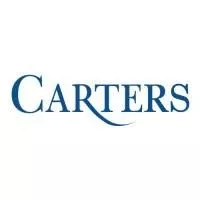The Canada Revenue Agency ("CRA") commented in 2022-0953121E5 dated August 30, 2023 whether an organization ("AbcCo") would continue to qualify as a non-profit organization ("NPO") under paragraph 149(1)(l) of the Income Tax Act ("ITA") if it transferred some assets (primarily intellectual property) to a taxable subsidiary incorporated in Canada ("SubCo").
The CRA was asked to comment on three scenarios involving SubCo – (i) AbcCo has voting control of SubCo (that is, SubCo is a subsidiary of AbcCo), (ii) AbcCo does not have voting control of SubCol; and (iii) AbcCo takes back fixed-value preferred shares of SubCo in exchange for the transfer of Assets.
One of the requirements for NPOs in paragraph 149(1)(l) means that NPOs must be organized and operated exclusively for a purpose other than profit. In this regard, the CRA referred to the decision of the Tax Court of Canada in Tourbec (1979) Inc. v. M.N.R. that "the word exclusively must be given its full effect and it is not sufficient that an organization should be organized mainly or primarily or chiefly for any purpose other than profit, it must be organized exclusively for that purpose." As such, the term "exclusively" means that while an NPO may have many purposes, none of those purposes can be to earn a profit. This means that an NPO cannot, at any time, intend to earn a profit, even if it expects to use or actually uses that profit to support its not-for-profit objectives.
In general, the CRA accepts that an organization earning incidental profit that arises from activities directly connected to its not-for-profit objectives does not have a profit purpose.
Merely incorporating and holding shares of a taxable subsidiary will not, on its own, cause an organization to not be tax exempt under paragraph 149(1)(l). However, the CRA takes the position that if an organization holds shares to earn income from property, it will be considered to have a profit purpose where the income is not incidental or not arising from activities directly connected to its not-for-profit objectives. It does not matter even if the income from those shares is used in furtherance of the organization's or another organization's not-for-profit objectives because the destination of funds test does not apply to charities and NPOs.
Generally, an organization which holds long-term investments (such as shares in a company) will generally be treated as doing so for profit, even when this profit is used to fund not-for-profit objectives.
Under the fact scenario considered by the CRA, SubCo's activities would have the potential to generate income in excess of AbcCo's current operational needs and are expected to generate a surplus in terms of revenues exceeding expenses. The CRA considered that this is an indicator that the income is not incidental and AbcCo has a profit purpose for its investment in SubCo.
The CRA acknowledged that it has not expressed a view on whether an NPO can co-invest with others in a taxable corporation without jeopardizing its tax-exempt status. In its view, an organization's investment in a taxable corporation will indicate a profit purpose under the following situations:
- the taxable corporation's activities are not connected to the organization's objectives;
- the organization does not control the corporation;
- the organization holds fixed-value preferred shares of the taxable corporation; or
- other shareholders have invested in the taxable corporation to earn a profit.
The CRA concluded that even if AbcCo was determined to meet the requirements for an NPO before its investment in SubCo, it would not continue to be a tax-exempt NPO as the investment appears to have been made to earn income from property (i.e., a profit purpose).
Read the May 2024 Charity & NFP Law Update
The content of this article is intended to provide a general guide to the subject matter. Specialist advice should be sought about your specific circumstances.
We operate a free-to-view policy, asking only that you register in order to read all of our content. Please login or register to view the rest of this article.


